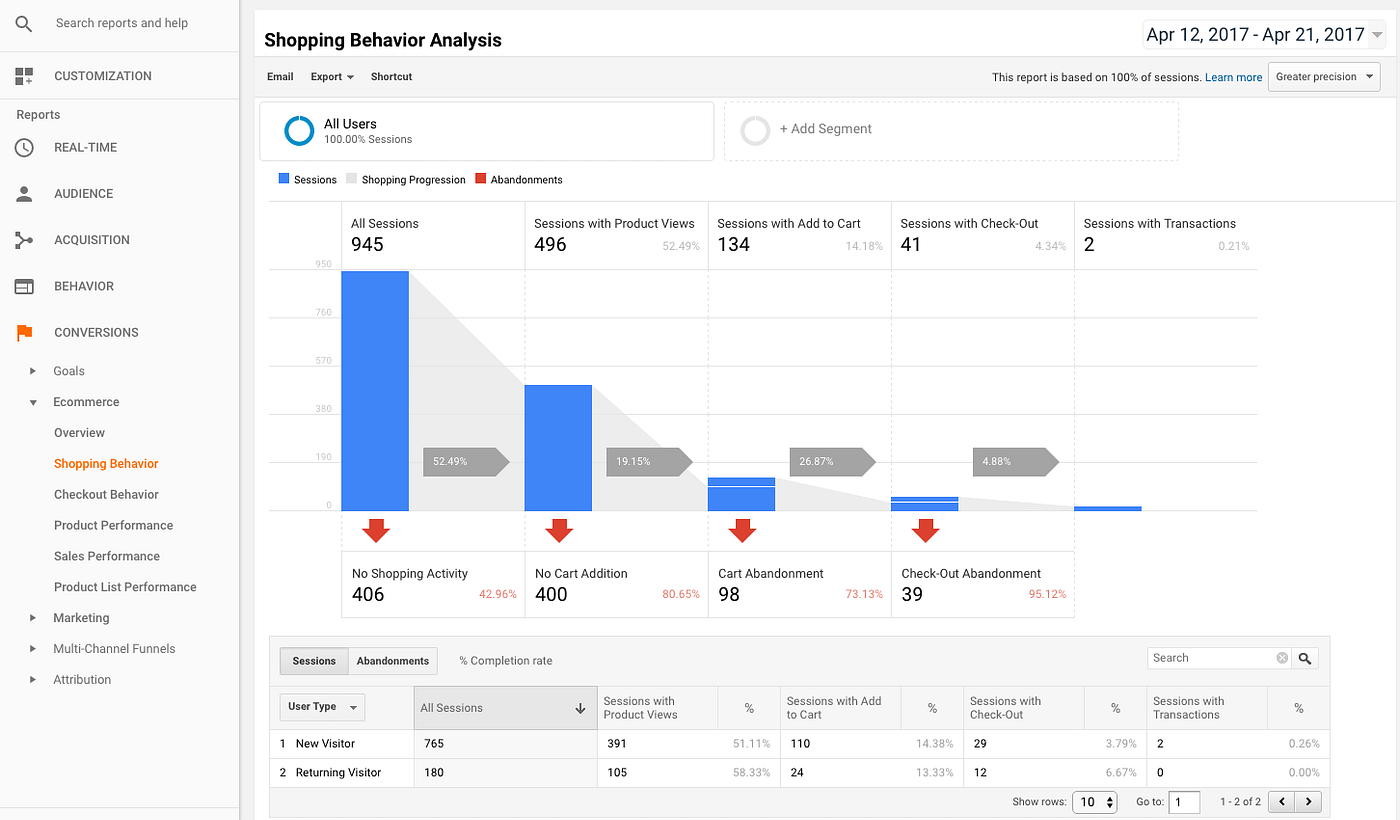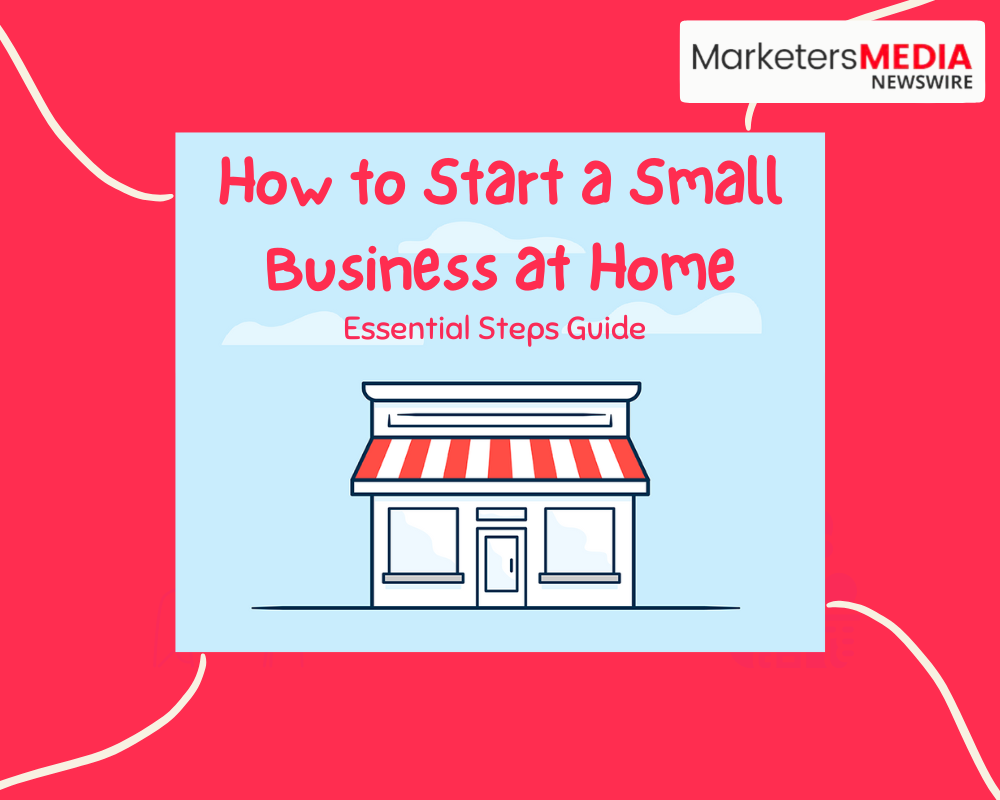Diving into the entrepreneurial pool with small business ideas from the comfort of your home can be as thrilling as it is daunting for new business owners looking to venture. With no bustling office to walk into or a boss to report to, starting a sole proprietorship as a small business at your house is a profit-driven adventure that's all yours. Yet, many potential business owners hesitate at the threshold, unsure how to convert their living space into a revenue-generating powerhouse for their new small businesses. It's simpler than you might think; with a clear vision and strategic steps, you'll find yourself not just dreaming about success but actually building it between your own four walls with small business ideas, profitable projects, and dedicated work.
In today’s digital whirlwind, setting up a small business office in your house has never been more accessible. Forget about the intimidating jargon and complex procedures; we're stripping down the process of how to start small businesses and projects at home to its bare essentials – practicality meets possibility right where you are, including your work and website.
Home Business Basics
SEO Writing Focus

To start a small home business, understanding SEO writing for your blog and website is crucial. This means using the right keywords in your content. You need to find terms related to your home business ideas, small businesses, projects, and website work. Then, you sprinkle these words throughout your articles.
But it's not just about keywords. Your articles should be easy to read too. Break down text into small chunks. Use headings and subheadings. Lists are also helpful for readers scanning the page.
It's important that the writing on your website matches the information people are searching for, known as search intent. If they're looking for home business ideas, give them a list of small business options or guides on how to start projects from their house using a website.
- Incorporate relevant keywords like "home business idea" smoothly.
- Structure with clear headings and short paragraphs.
- Align with search intent by providing practical advice.
Identifying Your Niche
Market Research

To start a small business at home, you must understand your market, clients, and work to develop a website. This means knowing which clients will buy your product or service from your small business. Look for trends and patterns in client age, location, interests, and website image source. It's crucial for small businesses to grasp the size of the market to understand client needs too. How many people might want what you're offering? Is this number growing?
Next comes consumer behavior. What do customers prefer? Why do they choose one product over another? You can find answers about clients through surveys or by studying sales data from businesses' websites.
- Identify target customer demographics: Age, gender, location.
- Assess market size: Use statistics to estimate potential customers.
- Understand preferences: Analyze reviews and feedback from similar products.
Knowing these details helps shape your business plan.
Competitor Analysis

Look at businesses that sell similar products or services. What are they good at? Where could they improve? This gives you an idea of how your small business can stand out in the market to clients and other businesses through work.
Find gaps in what competitors offer. Maybe there is a service that small businesses don't provide that clients need. Or perhaps their prices are high and your small business can offer clients more affordable work to help them.
- Analyze strengths: Good customer service, high-quality products.
- Spot weaknesses: Limited selection, poor online presence.
- Study pricing strategies: Compare competitor prices with each other.
Understanding competition guides your own strategy for success.
Identifying Demand
How much demand is there from clients for the help your small business wants to sell? Use tools like Google Trends to see how often people search for your website online. Social media also shows what's popular right now based on likes and shares, including the image source and time.
Ask potential small business clients directly about their needs through surveys or interviews to help them get started.
- Measure search volume using SEO tools.
- Monitor social media trends related to your niche.
- Get direct feedback from short questionnaires or polls.
This real-world info from your website tells if there's interest in your home business idea before investing time and work to start it up seriously.
Legal Considerations
Once you've identified your niche for starting a small business at home, it's crucial to address the legal aspects, including work time and website needs. These will protect your personal assets and ensure that your business complies with laws.
Business Structure

Choosing the right business structure is vital. It affects taxes, paperwork, and liability protection.
A sole proprietorship is simple to set up. Yet, it offers no liability protection. Your personal assets are at risk if your business faces legal issues.
An LLC (Limited Liability Company) provides more safety for personal property in a small business. It separates them from business debts and lawsuits. However, an LLC has more rules than a sole proprietorship does.
Corporations offer strong liability protection for small businesses but require complex setup steps, strict regulations, and more time and work.
- Sole Proprietorship: easy to start; less paperwork; no separation between owner and business; saves time; no need for complex structures.
- LLC: better liability protection; some additional formalities.
- Corporation: strongest protection; most regulation; separate entity entirely.
Permits and Licenses
Every home-based business must comply with local zoning laws. Check the time, small business needs, and regulations before you start operating out of your house.
You might need permits specific to what you do or sell in your small business as you start. For example, if you're starting a small business by baking cookies to sell online, health department permits may be necessary.
Keep all records updated for when small business license renewal times come around.
Tax Obligations
:max_bytes(150000):strip_icc()/Taxation_updated2-dfd2ae499d314d05972225d3f743f8aa.png)
Taxes can be tricky for new entrepreneurs:
As a small business owner, you have federal income tax obligations as well as possibly state and local ones too, and it's time to start preparing. Set aside money regularly so business tax payments don't surprise you when it's time to start paying. Hiring an accountant could help your business if taxes seem too complex or time-consuming and you need to start.
Remember:
- Understand all tax requirements and the need to start being aware of them in time when running a home-based small business.
- Save part of each sale for future tax bills.
- Accountants can simplify complicated tax matters.
Creating a Business Plan
Executive Summary
The executive summary is the start and the doorway to your business plan. It should clearly state your mission statement. This is a brief declaration of what your business stands for. For example, if you're starting a home-based bakery business, your mission might be "to bring joy through homemade pastries to meet customers' needs."
Next, outline your business goals and objectives. Goals are broad targets like starting a business to become the go-to bakery in town within five years. Objectives are steps to get there, such as starting a business and selling 50 cakes per month.
Lastly, pinpoint what makes your business stand out—your unique selling propositions (USPs) you need from the start. Maybe it's an heirloom recipe or late-night delivery service that no one else offers, fulfilling a business need you could start.

Marketing Strategy
Your marketing strategy gets the word out about your new home business start and what you need. Start by defining clear brand messaging and value proposition for your business which answers why customers need you over competitors.
Choose marketing channels wisely for your business based on where potential customers spend time; it could be social media or local events for direct interaction with them as you start.
Set specific business marketing goals like reaching 1,000 Instagram followers within six months to track progress effectively.
Financial Projections
A realistic view of money matters can make or break a small business started at home. Begin by estimating initial business costs such as equipment and branding materials alongside ongoing expenses like ingredients, packaging, and start-up needs.
Use market analysis to project revenue for your start-up business; consider how many products you must sell monthly to break even or turn a profit.
Plan for cash flow management in your business start-up because knowing when money comes in and goes out helps avoid shortfalls that could stall operations.
Setting Up Your Workspace
Dedicated Space
To start a successful home-based business, having a dedicated workspace is key. This area should be only for your work activities. It's important to choose a spot that meets both your business needs and legal requirements. For instance, if you're planning to start your business and see clients at home, privacy and professional appearance are crucial.
Your workspace must also foster productivity. Keep it free from distractions like household noise or foot traffic. Think about comfort too—a good chair and proper lighting go a long way in maintaining focus during long hours of work.
Equipment Needs
Once you have carved out space for your business operations, think about the tools you need to get started. Make a list of essential equipment to start your daily business tasks. This might include computers, printers, or specialized machinery depending on what you do to start your business.
Investing in quality equipment for your business start-up is wise because it tends to be more reliable and can handle heavy use without breaking down often. Remember that technology changes fast in the business world; so plan for upgrades as you start. Also consider maintenance costs and look into warranties when purchasing new items.
Developing Your SEO Skills
Keyword Research

Keyword research is vital for your home business. You need to find high-traffic keywords. These are words people often search for online. They should be related to the business you start, sell, or do.
Start by looking for broad terms in your niche. Then, add long-tail keywords. These are longer phrases that are more specific. They can help you reach a targeted audience.
Make a list of potential keywords. Look at how much competition there is for each business and how often people search them up when looking to start. Choose the best ones to focus on.
Content Optimization
Now, let's optimize your content with those keywords. Put them in titles, headers, and meta descriptions where they fit naturally. Your business website must load quickly and look good on phones too.
Internal links can make readers stay longer on your site. Link from one page of yours to another when it makes sense. This keeps visitors interested and moving through your site.
Analytics and Tools

To keep improving, you need the right tools. Google Analytics helps track who visits your business site and what they do there when they start engaging with your content. It's free and gives lots of useful info about starting a business and website performance.
SEO tools like SEMrush or Ahrefs offer deeper insights into optimization for business startups. They show you where you can improve things like keyword use or backlinks. Check these business metrics regularly so you know if changes are working well.
Building Your Online Presence
Website Creation
Creating a website is your digital storefront. Choose a responsive design template for your business from platforms like WordPress or Wix. This ensures your site looks good on all devices. A clear menu structure helps business visitors find what they need fast.
Your business contact information and calls-to-action should be on every page. They guide visitors to the next step in the business, whether it's making a purchase or reaching out for more info.
Social Media Strategy
When starting a business at home, social media is your best friend. Pick platforms where your audience hangs out most. It could be Instagram, Facebook, Twitter, or LinkedIn.
Develop a consistent posting schedule to keep followers engaged. Regular posts keep you in their minds. Engage with them by replying to comments and messages to build a community around your business brand.
Portfolio Development
If you offer business services or creative work, having an online portfolio is crucial. Show off business samples that highlight expertise and results achieved for clients/customers if applicable.
Remember to update this business portfolio regularly with new projects or testimonials as they come along.
Networking Strategies
Networking for business can take many forms today – both virtual and local events are valuable opportunities for connections.
Use LinkedIn actively for business; connect with peers and potential clients there too. Always focus on offering business value before asking for favors when networking. This approach builds trust and opens doors in the business world.
Marketing Your Services
After setting up your online presence, it's time to focus on marketing your business services. This is crucial for attracting clients and growing your business from home.
Networking Strategies
To start, networking is key. Create content that provides solutions to common business problems in your industry. This shows you're a business expert who can help potential clients. Distribute this business content across channels like email newsletters and social media.
- Write blog posts or guides that offer tips.
- Share stories of how you've solved issues for others.
- Use engaging visuals to complement your writing.
Next, look at the numbers. Track business likes, shares, comments, and click-through rates on what you post. These business metrics show what works and where you can improve.
Content Marketing
Content marketing helps share your business expertise with a wider audience.
Personalize outreach messages when contacting potential clients. Highlight how you can meet their specific needs.
- Mention past successes related to their challenges.
- Show understanding of their industry or personal goals.
Follow-up emails keep the business conversation going without being pushy
- Send an initial thank-you message after meetings.
- Follow up within a week if there's no response.
- Offer additional insights or resources they might find useful.
Lastly, consider offering incentives:
- Introductory rates make trying out your business service less risky for new clients.
- Limited-time discounts create urgency and encourage quick decisions.
Client Outreach
Effective business client outreach means staying organized while reaching out personally.
Use tools like Trello or Asana for project management:
- Keep track of all client interactions in one place.
- Set business deadlines and reminders so nothing falls through the cracks.
Automate repetitive tasks using platforms like Zapier:
- Schedule regular emails or social media posts automatically.
- Sync contacts between different apps seamlessly.
Create standard operating procedures (SOPs) for your business to maintain efficiency as you grow.
- Document each step in common business tasks for easy training later on.
- Establish clear guidelines so quality remains high in the business even as workload increases.
Remember that every interaction counts when building relationships with potential customers; consider creating personalized business cards
Managing Operations
Workflow Systems
Once you've marketed your business services and started to see some response, it's vital to have a workflow system in place. This ensures that your small business runs smoothly from home. Regular updates are key. They keep everyone on the same page. Use emails or project management tools for this purpose.
Addressing client concerns quickly is also crucial. It builds trust with your clients. If they have an issue, solve it fast. After finishing a project, ask for feedback. This shows you value their opinion and want to improve your business.
Client Relations
Good business client relations stem from how well you manage tasks and time. The Eisenhower Matrix can help prioritize tasks effectively.
- Do urgent and important tasks first.
- Schedule less critical ones later.
- Delegate or delete what's neither urgent nor important.
Also, allocate specific timeslots for different activities during the day or week:
- Set aside hours for deep work without interruptions.
- Designate time for meetings and calls separately.
Avoid multitasking in business as it can reduce the quality of your work on high-priority tasks.
Time Management

Knowing when to expand is part of effective time management in starting a small business at home. Look out for signals like consistent demand increases in your business before offering more products or services.
Outsourcing helps too:
- Hire freelancers for non-core activities.
- Use virtual assistants to handle routine tasks.
Invest in additional business resources only if workload increases justify them
- More customer inquiries may mean hiring extra help.
- Larger order volumes could require better software or equipment.
Growing Your Business
Scaling Services
To grow a small business from home, expanding service offerings is key. Complementary services can reduce risk. They help balance income streams. For example, if you offer web design, consider adding SEO services too. This way, clients get more value.
Adapting the business model to market changes is also vital. Stay flexible and responsive. If customers start preferring virtual consultations, shift your business approach accordingly.
Partnerships are another growth avenue. Team up with businesses that complement yours for cross-promotion opportunities. A graphic designer might partner with a print shop to expand their business, for instance.
Diversification Strategies
Diversifying in business involves branching out into new areas while keeping core operations strong. Stay informed about industry trends to remain competitive:
- Attend webinars.
- Take courses related to your field.
- Read relevant publications regularly.
Seeking mentorship helps as well. Experienced entrepreneurs can provide valuable insights and guidance on business diversification strategies.
Test new ideas but evaluate their effectiveness carefully:
- Implement one strategy at a time.
- Monitor results over several weeks or months.
- Adjust based on feedback and data collected.
This methodical approach helps small business owners make informed decisions without risking current profits too much.
Continuous Learning
Reflect on the steps taken so far in starting your home-based business:
- Identify what has worked well;
- Acknowledge challenges faced;
- Outline how you've adapted over time.
The journey of starting a new business demands persistence despite hurdles encountered along the way—keep pushing forward!
Continuous improvement is crucial for sustained success:
- Regularly review processes and outcomes.
- Learn from mistakes and successes alike.
- Adapt strategies as needed to keep growing effectively.
Home-Based Business Success Rate
A key piece of information that potential home-based business owners might find encouraging is the success rate of such ventures. According to recent statistics, an impressive 70% of home-based businesses remain successful after three years, compared to just 30% of traditional businesses. This striking difference highlights the viability and resilience of home-based business models in today's economic landscape.
Final Remarks
Starting your home-based business is like planting a seed in your backyard; nurture it with the essentials we've covered, and you'll watch it grow. You've got the business basics down, pinpointed your niche, and waded through legalities. Your business plan is your blueprint, and your workspace, the ground from which your dreams will sprout. SEO and online presence are the sun and water, vital for a business's survival in today's digital ecosystem. Marketing and operations? They're the daily care ensuring robust growth.
Now, push forward. Engage customers, refine strategies, and expand your reach. Remember, every big corporation started as a small seedling. Yours is no different. So roll up your sleeves; it's time to get your hands dirty and turn that business dream into a thriving reality. Ready to leap into entrepreneurship? Chase that business horizon – start now, grow steadily, and don't look back.
Frequently Asked Questions
What are the first steps to starting a small business from home?
Identify your niche, understand basic home business requirements, and draft a solid business plan.
Do I need legal permits to start a home-based business?
Yes, you'll need to check local regulations for required business licenses or permits.
How do I create an effective workspace at home?
Designate a specific area that's comfortable and free from distractions.
Can SEO really help my home-based business grow?
Absolutely! Developing SEO skills can significantly increase your online visibility.
What's the best way to market my services from home?
Leverage social media and build an engaging online presence tailored to your business's target audience.
Is it difficult to manage operations of a small home-based business?
It can be challenging but staying organized and adaptable is key to managing a business effectively.
What strategies should I use for growing my small at-home business?
Focus on networking, customer satisfaction, and continually refining your marketing approach.
Free Press Release Template
Tell us where to send your PDF:







